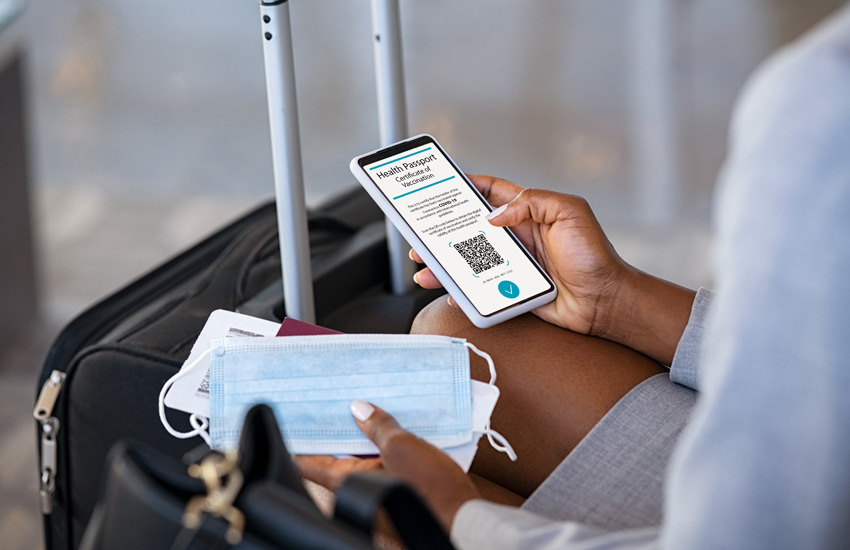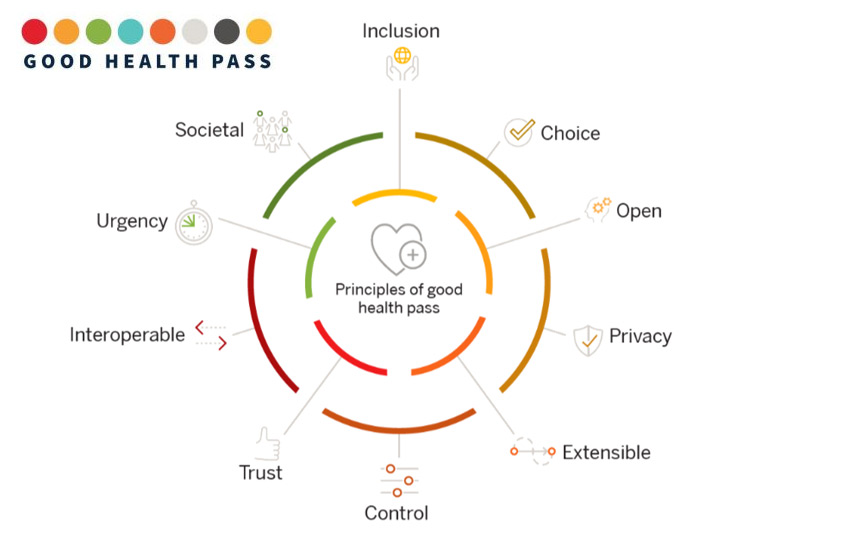Yesterday QDX HealthID announced a partnership with Innova Medical Group (IMG) to implement IMG antigen, antibody and PCR swab tests into its blockchain-based platform for COVID-19 immunity passports.
QDX HealthID was created earlier this year as a subsidiary of the US-based quantum dot producer Quantum Materials Corp (QMC). The platform, which is currently in beta testing, seeks to address the issue of unreliable or inauthentic health data. Often, these are recorded on paper, making forgery and tampering a major issue.
The QDX HealthID solution uses distributed ledger technology (DLT) to immutably and securely store authentication data for COVID-19 immunity passports which are used to show whether an individual has the virus. More specifically, what’s stored is the authenticity of the patient’s identity, the test, and the person administering the test.
This latest development marks a significant step forward for the platform. Its test kit now includes six of the 12 rapid-result antibody tests approved by the USA’s Food & Drug Administration’s Emergency Use Authorization.
How it works
We chatted with Quantum Materials Corp (QMC) back in May to clarify details about its solution. The QDX HealthID app takes a patient through the identification process such as providing a passport or driver’s license, which is sent for verification to a third party service. And when they take the test, the patient and person administering the test bump phones to exchange information and authentication. The Coronavirus test results are displayed in the app as a simple yes or no.
“What we’re trying to do is provide them (the patient) with is an authenticated testing process wherein their identity is authenticated. And when they actually take the test, the app allows them to authenticate the test, that they’re getting a legitimate test and not a fake test,” said QMC’s Nick Vitalari.
He continued: “It also authenticates the person giving them the test to make sure that that individual is an authorized person to do so.”
“And so what they end up with is a test result which they can show it is truly their test result (which they haven’t switched with someone else). And it was an authenticated test through an authenticated person administering that test. And that information is written to the blockchain, not their test results.”
“The test results are available to them and only to them and to whom they consent to provide the information about their health.”
Vitalari clarified that personal details are not stored on the blockchain. The blockchain stores the date, time and location where the test was taken and the authentication of each aspect. All the blockchain data is de-identified and stored as an encrypted token. The medical data is stored in a HIPAA compliant database.
What does QDX Health ID have to do with quantum dots?
Quantum dots are nanoparticles that emit colors when illuminated. QMC has developed a track and trace system that uses quantum dots, but the QDX Health ID does not use quantum dots. As part of the track and trace anti-counterfeit solution, the blockchain authentication platform described above was developed. It is only the authentication platform that is used in QDX Health ID.
In the early days of COVID-19 and the lockdown, getting a company to adopt quantum dots for anti-counterfeit in a supply chain was out of the question. Hence the temporary pivot to use the authentication platform for COVID-19 tests and the launch of QDX Health ID.
We asked whether quantum dots might be used in the future to track medical goods, drugs, or tests. The response was if they are used, they would be used on the surface packaging.
“To put them in the product is premature,” said Nick Vitalari. “Even though we produce non toxic quantum dots, putting them within anything that’s going to be consumed by a human, is a ways out.”
Vitalari continued: “There’s some really interesting (quantum dot) research that’s going on that people have reported on. For example, there was a research study where some research group had shown that they could tag viruses with quantum dots. But that’s early-stage lab research type of stuff. We would not be doing that.”
Numerous other firms are developing blockchain initiatives for COVID-19 immunity passports. The COVID-19 Credentials Initiative (CCI), in which over 100 institutions are participating, is just one such example. Immunity passports are also considered controversial, with an ID2020 advisor recently resigning because of objections to them.
Another effort is being undertaken by a consortium formed from Swiss security firm SIPCA, French health data platform OpenHealth and Estonian blockchain company Guardtime.






